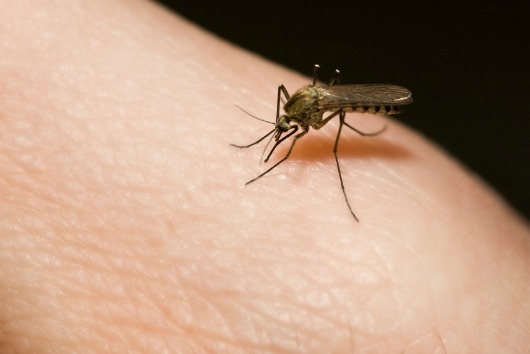How to avoid and treat insect bites
Warm weather and the end of school have many of us heading outside to enjoy nature and clock some hours in the fresh air. This is a good thing, unless we run into problems with the six-legged members of our society – namely, the insects that have us scurrying for sprays, swatters and the indoors.
Typically, bites in Canada are not dangerous or life-threatening unless someone has an allergy, in which case the situation can be emergent indeed. If you see what looks to be an allergic reaction, seek medical help immediately. Anaphylactic reactions can include shortness of breath, wheezing, rapid heartbeat, sweating, and swelling of tongue, lips and/or face. Otherwise, most of the prevention and treatment can be handled on your own.
Here are a few of the most common pests you’ll encounter:
Mosquitoes: You’ll find far more of these around at dawn and at dusk, so avoid spending time in grassy areas during these times. If you know you’ll be outside when they will be plentiful, be prepared with insect repellant. Mosquitoes tend to be worse in June and July – though as we all know, they can be a bother during any warm month. In your own yard, you can reduce the amount of mosquitoes by getting rid of any standing water where they are likely to breed. Dump out watering cans, flowerpots, and put a screen atop your rain barrel, if you have one.
Ticks: These creepy pests are prevalent in long grass and unkempt areas, so going off trails to hike and explore will increase your exposure. Wear long pants, socks and good shoes if hiking through rough areas, and check yourself and your clothing carefully after each outing. Check your kids and pets carefully as well to be sure they aren’t carrying any extra guests. Ticks can be around from spring to fall so keep your eyes open and be mindful when your activities take you into areas where they are likely to live. If you fall ill after being bitten by a tick, see a doctor as there are risks of Lyme disease.
Wasps/bees: These are always of extra concern because of the chance of someone having an allergic reaction to a sting. The stings of bees and wasps are treated in a similar manner, but remember a bee can only sting once and will leave a stinger behind in your skin that needs removing in safe and clean manner. Use a credit card or something else with a clean edge to remove it as soon as possible. Wasps do not leave a stinger behind but can sting more than once. Wasps are often attracted to food and sweet drinks you may have nearby so keep an eye on containers and drinks as you eat and sip to be sure you aren’t sharing. Perfumes and scented products can attract bees and wasps, as can brightly coloured or floral clothing.
Prevention:
How can you prevent troubles with insect pests? Know times and areas that are higher risk and avoid them. Use insect repellent with DEET (but be careful as children should not use products with too much – always look for a product with the lowest amount you can find). Wear long pants and sleeves and if hiking in tall grass to prevent ticks from having easy access to skin, and to reduce insect bites. Avoid using repellants with high amounts of DEET on children, and no matter what product you use, be careful to keep it off of babies’ hands – there is no way to keep fingers and hands out of their mouths so best to just avoid it.
Treatment:
The use of Calamine lotion or after-bite remedies can help immensely. Benadryl or an Epi-Pen may be needed in cases where someone has an allergy or is prone to anaphylactic reactions. A crushed up aspirin can neutralize the venom in a sting and relieve itching.
Natural remedies:
An ice cube can cool an affected area and reduce swelling, as can a cold compress. Peppermint oil can cool and increase circulation, speeding the healing. Apple cider vinegar, tea tree oil, lavender, onion, meat tenderizer, and papaya have all been reported to help heal stings and bites so if you are eager to explore natural remedies, do a little research and see what might be right for you.
There are many ways to reduce how much insects bother you as you enjoy your summer, so follow recommendations, deal with problems as they come and get outside!
